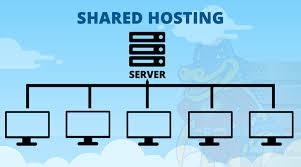
Joomla is a free and open-source content management system (CMS) that enables users to build and manage websites and powerful online applications. It was first released in 2005 and has since become one of the most popular CMS platforms globally. Joomla is written in PHP and uses a MySQL database to store content and configuration data. With a robust and extensive community, Joomla continues to evolve, offering users a flexible, user-friendly, and customizable platform for creating websites ranging from personal blogs to complex corporate portals.
In this comprehensive overview, we'll explore Joomla's history, key features, benefits, and the process of using it to create and manage websites. We'll also touch on some essential technical aspects, security considerations, and the future outlook for Joomla.
1. History and Evolution
Joomla's development started in 2000 as a fork of Mambo, another CMS. The project's name "Joomla" means "all together" in Swahili, symbolizing the collaborative nature of the platform. Joomla's community-driven approach has been instrumental in shaping its success. It has undergone multiple iterations, with each new version introducing enhanced functionality and improvements. The project is managed by the Joomla Project Leadership Team, and developers worldwide contribute to its continuous development.
2. Key Features
Joomla boasts a wide array of features that cater to various website requirements:
- a. User-friendly Interface: Joomla offers an intuitive admin interface, making it accessible to users of all technical levels. It allows users to manage content, templates, and extensions with ease.
- b. Extensibility: The platform's real strength lies in its extensions. Joomla supports thousands of extensions, including plugins, modules, components, and templates. This flexibility allows users to add functionality and customize their websites according to specific needs.
- c. Multilingual Support: Joomla natively supports multilingual content, making it an excellent choice for international websites catering to diverse language audiences.
- d. Media Management: The CMS provides comprehensive media management, enabling users to handle images, videos, and other files efficiently.
- e. Access Control Levels: Joomla's powerful access control system lets website owners define user roles and permissions, ensuring secure content management and administration.
- f. SEO-Friendly: Joomla offers built-in features to optimize websites for search engines, improving their visibility and ranking.
3. Website Creation Process
Creating a website with Joomla typically involves the following steps:
- a. Installation: After downloading Joomla, users need to set up the CMS on their web servers. This process involves creating a database, configuring server settings, and running the installation script.
- b. Choosing a Template: Users can select from a vast library of free and premium templates to determine the website's design and layout.
- c. Installing Extensions: Joomla's extension directory provides access to a plethora of extensions. Users can install the ones that meet their specific requirements, such as contact forms, galleries, e-commerce functionalities, and more.
- d. Content Creation and Management: Once the template and extensions are set up, users can begin creating and organizing their content. Joomla's WYSIWYG editor allows for easy content creation.
- e. Customization: Joomla's extensibility allows for extensive customization of the website's appearance and functionality. Users can modify templates and install additional extensions to meet their unique needs.
- f. Testing and Launch: Before launching the website, thorough testing ensures that all components work seamlessly and that the website functions optimally across various devices and browsers.
4. Community and Support:
Joomla boasts an active and passionate community of developers, designers, and users. The Joomla Forum and community-driven resources provide excellent support to users facing challenges or seeking advice. Additionally, regular updates and security patches are released to maintain the platform's stability and security.
5. Security Considerations:
As with any online platform, security is a crucial concern. Joomla takes security seriously and regularly releases updates to address vulnerabilities. To ensure a secure Joomla website, users should follow best practices such as using strong passwords, keeping extensions and the core CMS up-to-date, and implementing security extensions and protocols.6. Joomla for E-commerce:
Joomla, when combined with suitable e-commerce extensions, can serve as a solid foundation for building online stores. Users can integrate popular e-commerce solutions like VirtueMart or HikaShop, enabling them to sell products or services effectively.7. Joomla's Future Outlook:
As of my knowledge cutoff in September 2021, Joomla continued to be a widely used CMS. The project aimed to keep improving the platform, introducing new features, and maintaining a strong focus on security and stability. The Joomla community's dedication and the platform's versatility are expected to contribute to its enduring popularity in the CMS landscape.
In conclusion, Joomla is a powerful and versatile CMS that empowers users to create dynamic websites and online applications. With its user-friendly interface, extensibility, multilingual support, and strong community backing, Joomla remains an excellent choice for individuals, businesses, and organizations seeking to establish a robust online presence.



